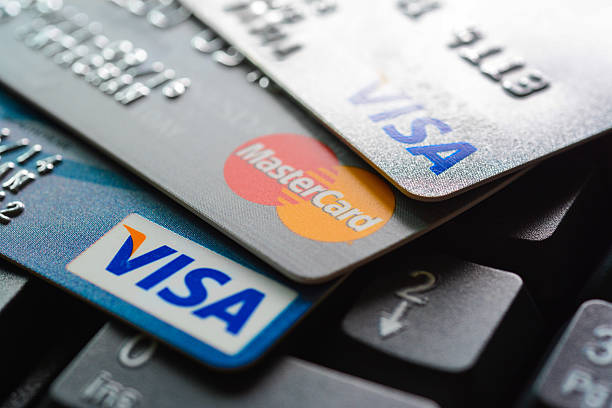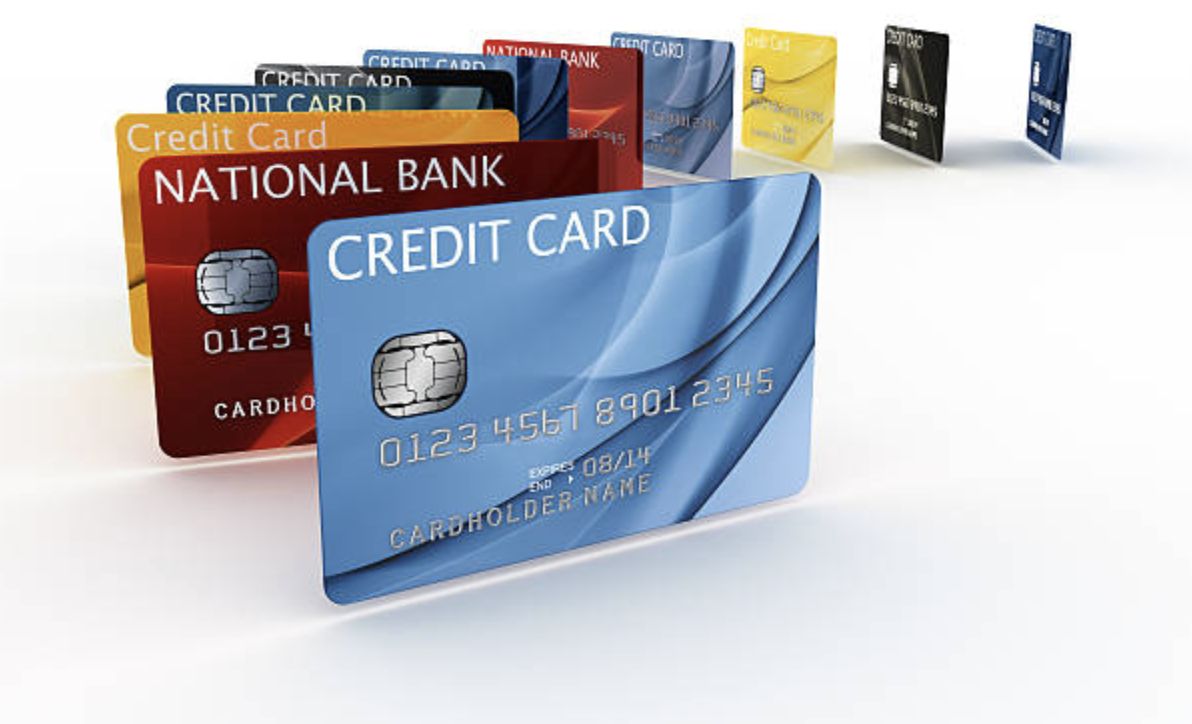You are now leaving the Bright website and entering a third-party website. Bright has no control over the content, products, or services offered, nor the security or privacy of information transmitted to others via their website. We recommend that you review the privacy policy of the site you are entering. Bright does not guarantee or endorse the products, information, or recommendations provided on any third-party website.
Did you know that, on average, Americans have approximately four credit cards per person? Credit cards have become an integral part of the modern financial landscape. They offer convenience, flexibility, and numerous perks when used responsibly. However, one common question that often arises is, "How many credit cards should you have?" The right number of credit cards differs from person to person; hence, there is no universally applicable solution to this query.
But before we get into the topic, it is recommended to first read about the Top 5 types of Credit Cards to Build Credit in detail by Bright Money!
In this thorough guide, we'll examine the elements to take into account when determining how many credit cards are appropriate for you and offer guidance to help you make a well-informed choice.
What’s the ideal number of Cards for different Use Cases?
The ideal number of credit cards you should use depends on your individual financial situation, goals, and spending habits. There is no one-size-fits-all answer, but here are some general guidelines for different use cases:
1. Building Credit:
Ideal Number of Cards: 1 or 2
Explanation: If your primary goal is to establish or boost your credit history, one or two credit cards are generally sufficient. Focus on making on-time payments consistently and keeping your credit utilization low to build a positive credit history.
2. Earning Rewards:
Ideal Number of Cards: Multiple (2-4)
Explanation: To maximize rewards and cashback, consider having multiple credit cards with different reward structures. For example, you could use one card for everyday expenses, another for travel, and a third for specific categories like dining or groceries. Having a few cards tailored to your spending habits can help you earn more rewards.
3. Managing Expenses:
Ideal Number of Cards: Multiple (2-3)
Explanation: Some individuals prefer to use credit cards as a tool for managing their monthly expenses. In this case, having two or three cards may help you allocate different expenses to specific cards, making budgeting and tracking spending easier. Be cautious not to accumulate excessive debt.
4. Building or Rebuilding Credit:
Ideal Number of Cards: 1 (Secured or Unsecured)
Explanation: If your credit history is limited or poor, start with a secured credit card or a single unsecured card. Focus on responsible usage and making payments on time to build or rebuild your credit before considering multiple cards.
5. Debt Consolidation and Lowering Interest:
Ideal Number of Cards: 1 (Balance Transfer Card)
Explanation: If you're consolidating debt to lower interest costs, a balance transfer credit card with a low or 0% introductory interest rate is your best choice. Transferring all high-interest balances to this card can save on interest charges.
Want to experience Stress-free Finance management; Credit Cards, Debt, Credit, Bills, Budget? Click and Try Bright!
6. Making Large Purchases and Avoiding Interest:
Ideal Number of Cards: 1 (0% APR Introductory Card)
Explanation: For making significant purchases and avoiding interest, consider a credit card with a 0% APR introductory period. This allows you to spread out payments without incurring interest charges during the promotional period.
7. Business Expenses and Separating Business Finances:
Ideal Number of Cards: 1-2 (Business Credit Cards)
Explanation: Business owners can benefit from one or two business credit cards to manage and track business expenses separately from personal finances. Additional employee cards may be issued as needed.
8. Student Credit Cards:
Ideal Number of Cards: 1 (Student Credit Card)
Explanation: For students looking to build credit, one student credit card is usually sufficient. Use it responsibly to establish a positive credit history.
9. Short-Term Financing and No Preset Spending Limit:
Ideal Number of Cards: 1 (Charge Card)
Explanation: Charge cards are suitable for individuals who can pay off their balances in full each month and prefer the flexibility of no preset spending limit.
10. Luxury Travel and Premium Benefits:
Ideal Number of Cards: 1-2 (Premium or Travel Credit Cards)
Explanation: Frequent travelers and those seeking luxury experiences can benefit from one or two premium or travel credit cards. These cards offer exclusive perks, such as airport lounge access and premium travel insurance.
11. Store Discounts and Loyalty Rewards:
Ideal Number of Cards: 1-2 (Store Credit Cards)
Explanation: If you frequently shop at specific retailers, having one or two store credit cards can help you maximize discounts and loyalty rewards for those stores.
Want to experience Stress-free Finance management; Credit Cards, Debt, Credit, Bills, Budget? Click and Try Bright!

What is the average number of cards generally used today?
The average number of cards generally used today varies, but many individuals use between 2 to 4 credit cards regularly. It depends on various factors, including personal preferences, financial needs, and creditworthiness. While there is no one-size-fits-all answer, here are some insights into the average number of credit cards that people generally use.
1. One to Two Cards:
Many individuals choose to have just one or two credit cards for various reasons, with a primary focus on building and maintaining good credit:
- Credit Building: For those who are new to the world of credit or have a limited credit history, starting with one or two cards allows them to establish a positive credit record. Using these cards responsibly by making on-time payments and keeping their credit utilization (the ratio of credit card balances to credit limits) low helps build a strong credit history
- Simplicity and Responsibility: Managing a small number of cards is simpler and less overwhelming for many people. It's easier to keep track of due dates, monitor balances, and ensure responsible credit use with just one or two cards
- Lower Risk: With fewer cards, there's less risk of overspending and accumulating debt. This approach can be suitable for those who want to avoid the temptation to use multiple cards for impulsive purchases
2. Two to Four Cards:
Another common approach is to have two to four credit cards, often motivated by a desire to balance rewards and simplicity:
- Reward Maximization: People in this category want to take advantage of various rewards programs offered by different credit cards. For instance, they might use one card for everyday expenses to earn cashback, another for travel expenses to accumulate miles or points, and yet another for specific categories like dining or groceries to earn bonuses or discounts
- Diversification of Benefits: By having multiple cards, individuals can diversify their benefits and perks. They can select cards that cater to their specific spending habits and preferences, thereby optimizing the rewards they receive
- Increased Financial Flexibility: Having a few cards can provide financial flexibility. If one card has a lower interest rate or offers a 0% APR balance transfer promotion, they can use it strategically to reduce debt.
3. More Than Four Cards:
Some individuals, particularly those with extensive experience in managing credit and a strong interest in maximizing rewards, may hold more than four credit cards:
- Rewards Enthusiasts: These individuals meticulously track their expenses and the benefits associated with each card. They are well-versed in the intricacies of each rewards program and use each card strategically to extract the maximum value in terms of cashback, points, miles, or other perks
- Optimizing Bonus Categories: With a broad selection of cards, they can take advantage of bonus categories that may change over time. For example, they may use a card that offers extra rewards for seasonal or rotating categories
- Advanced Financial Planning: Owning multiple cards may be part of a sophisticated financial strategy. These individuals understand the importance of managing their credit portfolio and are adept at doing so responsibly

Want to experience Stress-free Finance management; Credit Cards, Debt, Credit, Bills, Budget? Click and Try Bright!
Factors to Consider When Deciding on the Number of Credit Cards
The number of credit cards you have to hold differs depending on your situation. It is based on a number of particular elements that are specific to your financial condition, ambitions, and personal preferences. The number of credit cards you should have depends on your financial goals, credit score, and credit utilization. For building credit, one or two cards may suffice. If you want to maximize rewards, multiple cards with different benefits can be beneficial. For managing expenses, multiple cards may help, but it requires careful utilization management.
The important elements you should take into account while choosing the ideal number of credit cards for you will be covered in this section.

Want to experience Stress-free Finance management; Credit Cards, Debt, Credit, Bills, Budget? Click and Try Bright!
What are the Pros and Cons of owning Multiple Credit Cards?
Owning multiple credit cards can offer various advantages and disadvantages. In this section, we'll explore both the pros and cons to help you out in making the right decision about how many credit cards are right for you.
Pros of Owning Multiple Credit Cards
1. Diverse Rewards: You can take advantage of various rewards programs, such as cashback, travel miles, or points, tailored to different spending categories
2. Boosts Credit Score: Responsible use of multiple cards may help boost your credit score by increasing your available credit limit and diversifying your credit mix
3. Backup in Emergencies: Having multiple cards can be a safety net in case one card is lost, stolen, or compromised
4. Specialized Benefits: Different cards may offer specialized benefits like travel insurance, extended warranties, or purchase protection
5. Utilization Rate Control: With multiple cards, you can better control your credit utilization rate, which can boost your credit score
6. Sign-Up Bonuses: Multiple cards may offer sign-up bonuses, which can provide significant value if you meet the spending requirements
7. Currency Conversion: When traveling internationally, having multiple cards can help you in avoiding foreign transaction fees by choosing cards with better terms
8. Financial Flexibility: Different cards can offer different grace periods or billing cycles, providing flexibility in managing cash flow and expenses
9. Business and Personal Separation: Owning separate credit cards for business and personal expenses can simplify accounting and tax reporting for business owners
10. Building Credit History: Managing multiple cards responsibly over time can contribute to a longer and more positive credit history
Cons of Owning Multiple Credit Cards
1. Increased Debt Risk: Owning multiple cards can tempt you into overspending and accumulating more debt than you can manage
2. Annual Fees: Many credit cards come with annual fees, so owning multiple cards can lead to higher annual costs
3. Interest Charges: If you carry balances on multiple cards, the interest charges can add up, making it harder to pay off debt
4. Managing Complexity: Keeping track of multiple due dates, credit limits, and rewards programs can be challenging and time-consuming
5. Credit Inquiries: Opening multiple cards within a short time period can lead to multiple credit inquiries, potentially lowering your credit score temporarily
6. Temptation to Overspend: Having numerous credit cards can make it easier to overspend and also accumulate debt, especially if you're not disciplined
7. Credit Score Impact: Mismanaging multiple cards can hurt your credit score due to missed payments or high credit utilization
8. Difficulty in Closing Accounts: Closing credit card accounts can affect your credit score negatively, so managing and closing multiple accounts can be tricky
9. Temptation to Churn: Some individuals may open multiple cards solely for sign-up bonuses and then close them, which can impact their credit and they may not be financially responsible
10. Fraud Risk: Having more cards increases the potential for identity theft or credit card fraud
Conclusion
A study found that consumers with the highest credit scores (800 and above) have an average of 7 open credit cards, indicating that a moderate number of cards can be managed responsibly. Choosing the right number of credit cards hinges on factors like your financial goals, credit history, and spending habits. Whether you opt for one or multiple cards, responsible management is key.
Align your choices with your objectives, maintain discipline, and monitor your credit to maximize benefits while avoiding pitfalls. Ultimately, it's a personal decision based on your unique circumstances.
Want to experience Stress-free Finance management; Credit Cards, Debt, Credit, Bills, Budget? Click and Try Bright!
Must Read:
Credit Building Myths Exposed! Unveiling Truths
Best Secured Credit Cards to Build Credit Today!
FAQs
1. How many credit cards should I have for the best credit score?
The ideal number of credit cards for your credit score depends on various factors, but having a mix of credit types (e.g., credit cards and installment loans) can positively impact your credit score. Generally, 2-4 credit cards are considered a good range.
2. Can having too many credit cards affect your credit score?
While having multiple credit cards can potentially boost your credit utilization ratio, applying for too many cards in a short period may lead to multiple hard inquiries and a temporary dip in your credit score. However, responsible management can mitigate this effect.
3. What's the minimum number of credit cards I should have?
There's no set minimum number of credit cards you should have. Some individuals manage well with just one, while others benefit from having a few. It depends largely on your financial goals and credit needs.
4. Should I close old credit cards I don't use anymore?
Closing old credit card accounts can impact the length of your credit history, which is a factor in your credit score. It's generally advisable to keep old accounts open, especially if they have no annual fees.
5. How can I effectively manage multiple credit cards to avoid overspending?
To avoid overspending, create a budget, track your expenses, and use each card for specific categories or purposes. Setting spending limits for each card and reviewing your statements regularly can help you stay on track.
6. Is there an optimal mix of credit cards for various spending categories?
Yes, many credit cards offer specialized rewards for specific spending categories like dining, groceries, or travel. To optimize rewards, consider using the card that offers the highest rewards for each category you spend in.
7. How often should I check my credit reports when I have multiple credit cards?
It's a good practice to check your credit reports at least once a year from each of the major credit bureaus. If you have multiple credit cards and actively use credit, consider checking them more frequently, such as every four to six months.
8. What should I do if I have trouble managing multiple credit cards?
If you find it challenging to manage multiple credit cards, consider closing or reducing the number of cards you have. Alternatively, seek assistance from credit counseling services to create a manageable plan.
9. Can I have too much available credit with multiple credit cards?
While having a high total credit limit can be positive for your credit utilization ratio, it's essential to maintain financial discipline and avoid using all available credit, as excessive debt can negatively impact your credit score.
10. Should I apply for additional credit cards if I already have several?
Whether to apply for more credit cards depends on your financial goals and needs. Consider the benefits and drawbacks of every card and how they align with your objectives before applying for additional cards.
References:
https://www.experian.com/blogs/ask-experian/average-number-of-credit-cards-a-person-has/
https://www.experian.com/blogs/ask-experian/credit-education/score-basics/800-credit-score/
https://www.nerdwallet.com/article/finance/30-percent-ideal-credit-utilization-ratio-rule



